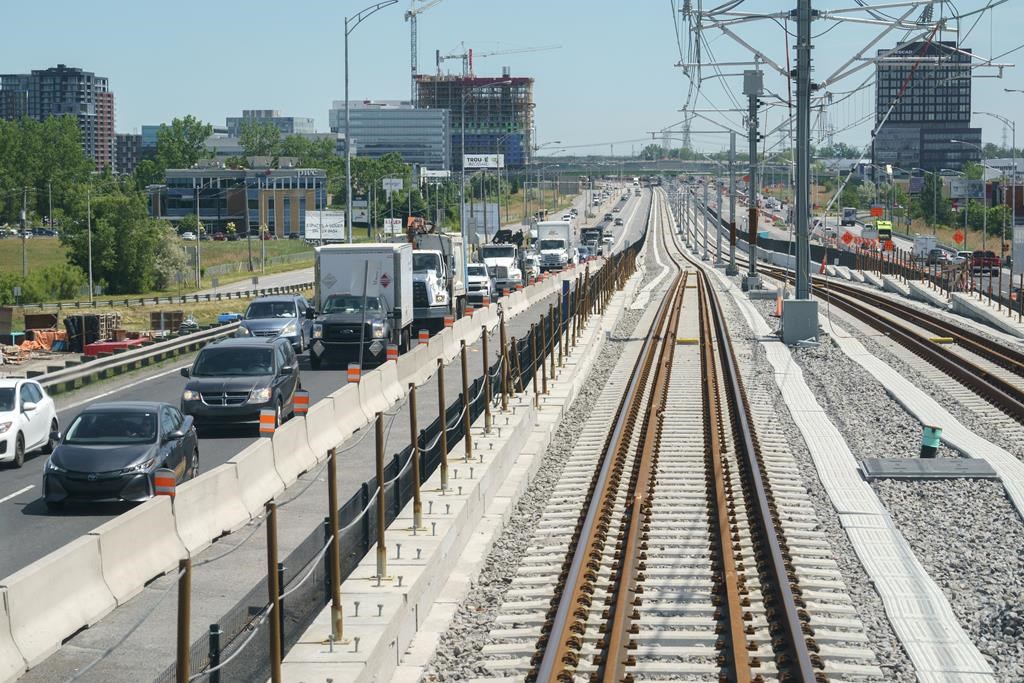A Montreal suburb has been ordered to pay thousands of dollars to around 300 residents who say they’ve suffered from years of unreasonable traffic noise.

The residents, who filed the class-action lawsuit a decade ago, live along a stretch of a road — chemin Des Prairies — in the city of Brossard, where traffic has steadily increased over the years as the community has grown.
The neighbourhood used to be largely farmland, but now chemin Des Prairies connects to a major boulevard and a large shopping mall, and 10,000 vehicles travel on it every day, Quebec Superior Court Justice Dominique Poulin wrote in her Oct. 10 decision.
“The court has heard 11 credible, sincere, convincing and disheartened residents who are significantly affected by the traffic, which they consider excessive … which causes them inconveniences that exceed, in the eyes of the court, by their severity and recurrence, the normal inconveniences they must endure as a result of living along the stretch,” Poulin wrote.
Residents had “no respite” from the noise and many had to soundproof their homes as a result of the traffic, she said.
“They can’t open their windows,” the judge wrote. “They are bothered by noise outside their homes and cannot have normal conversations when they are in front of their houses. Although some still enjoy their backyards and gardens, they complain that the noise is disturbing their peace and quiet.”
The City of Brossard argued that it had developed the district according to the law — and that despite the fact it had no responsibility to cut the amount of traffic on the road, it had taken steps to reduce the volume, noise and speed of vehicles.

Brossard also argued that it had immunity from the suit, because the decisions were political, Poulin wrote. While fundamental policy decisions made by elected leaders that require value judgments are covered by immunity if they are made in good faith and not irrational, she said the immunity doesn’t apply to the implementation and execution of those policies. Moreover, the judge found the amount of traffic on the street wasn’t the result of a deliberate policy decision.
Residents testified that they had chosen to move to the Brossard street because it was located in a quiet area with historical character, but all that changed as the city grew.
During a 1999 consultation on development in the district, Brossard said it planned to protect the historic character of the road and would take steps to limit the amount of traffic on it, but in 2013, it acknowledged that was never done.
Another public consultation was held in 2013, but residents said the city’s plans didn’t meet their expectations, and they began the process of filing the class action.
Poulin found that the city was responsible for the excess noise. Residents who have lived in the area since Dec. 31, 2009 — when the judge found that the situation had worsened — are eligible for $2,000 for every year they lived on the street since Feb. 12, 2013. The class action includes everyone who was living along the street as of that date.
Those who moved to the area after Dec. 31, 2009 — and should have been aware that residents were concerned about the traffic problem — will receive $500 for each year they have lived there since Feb. 12, 2013.
“Although these group members could not have expected the stretch to remain a lightly trafficked country lane, they could have reasonably hoped that progress and urban development would not cause them such inconveniences,” she wrote, adding that they couldn’t have expected their quality of life to deteriorate to such a degree.
Poulin, however, didn’t find that the city had committed a fault — and refused the residents’ request for exemplary damages. She also refused to order the city to split the section into two cul-de-sacs, as residents had requested.
Brossard spokeswoman Colette Ouellet said the city is appealing the decision, but declined to comment further.



Comments